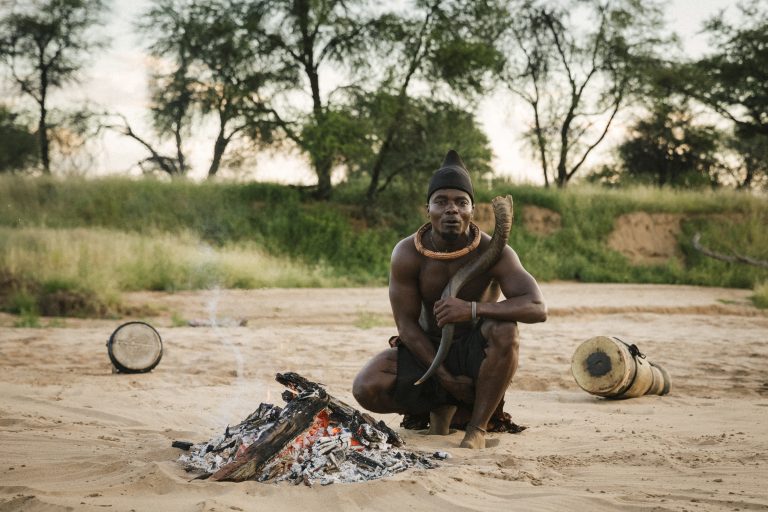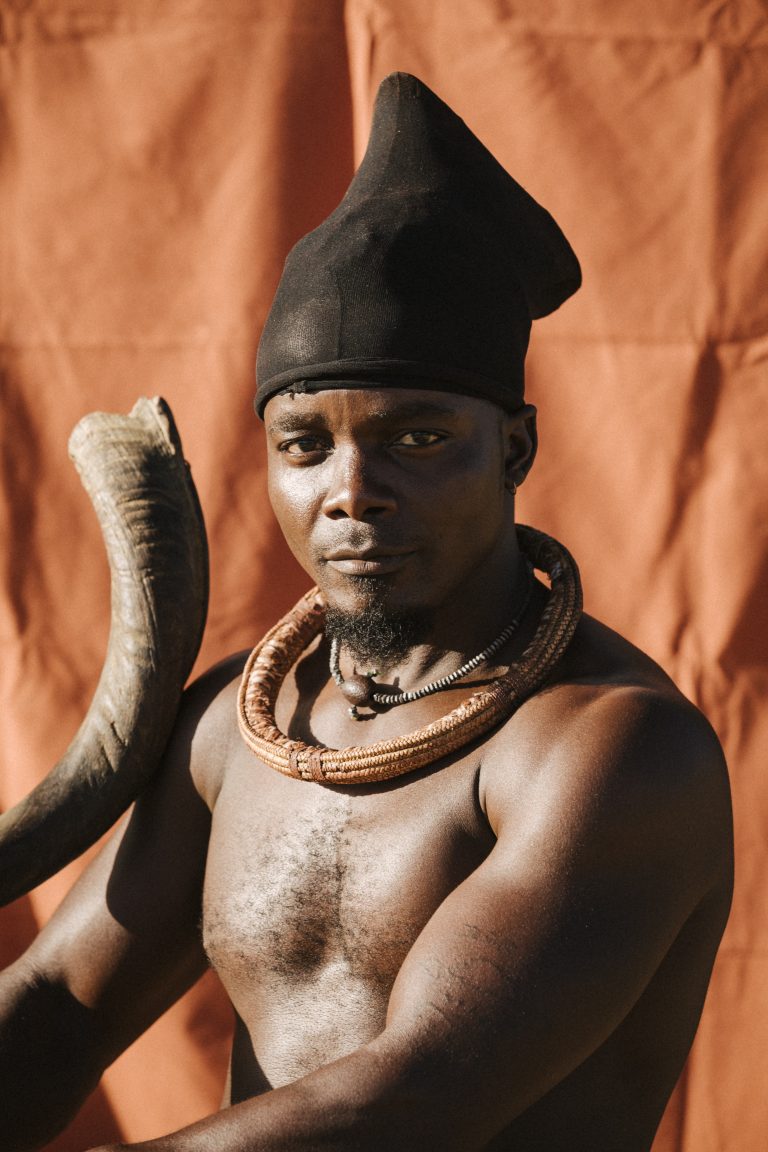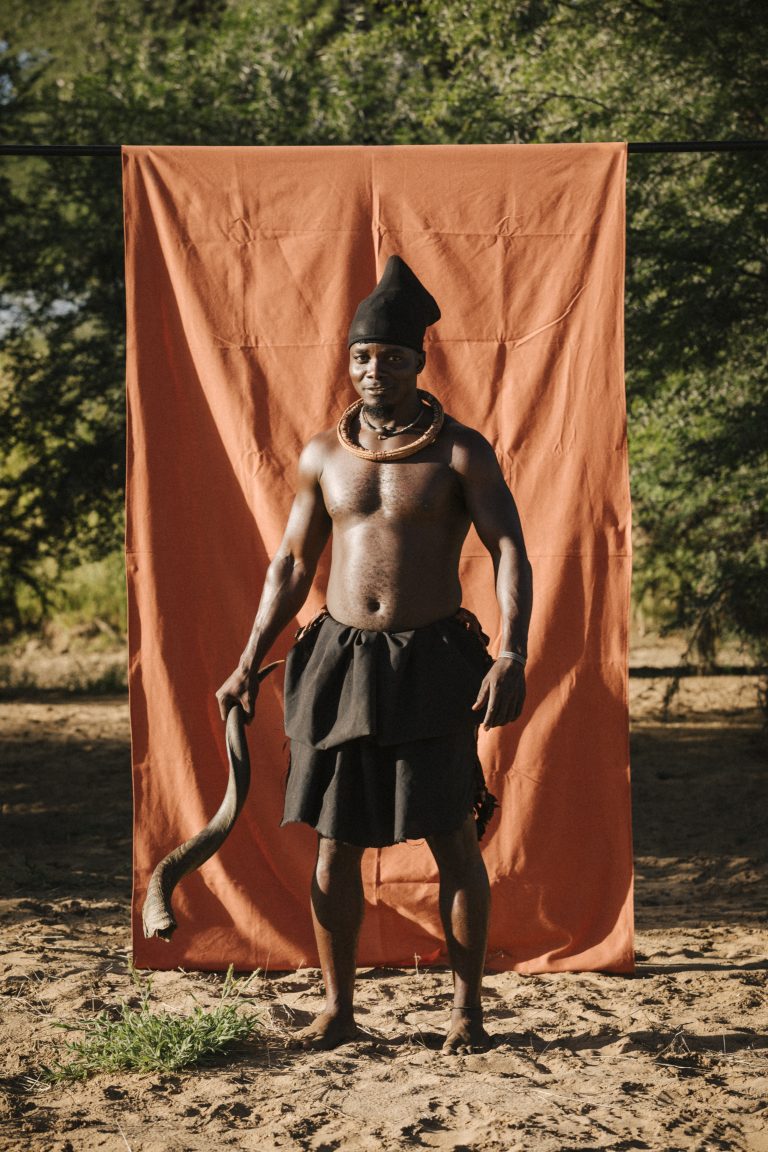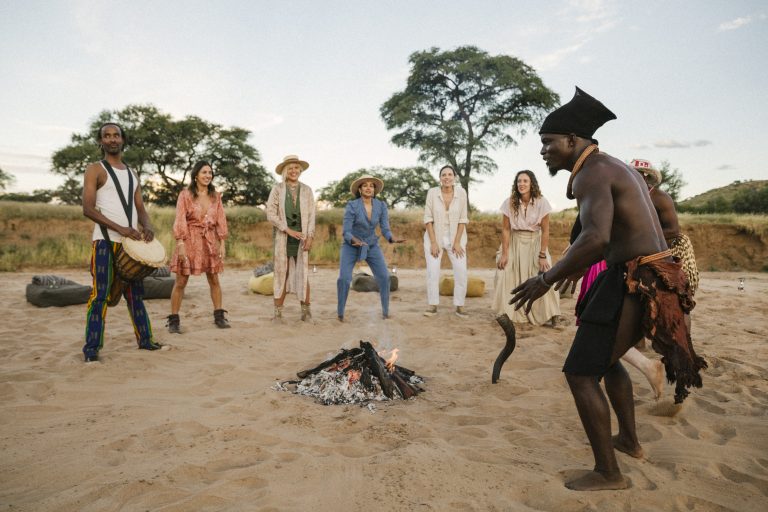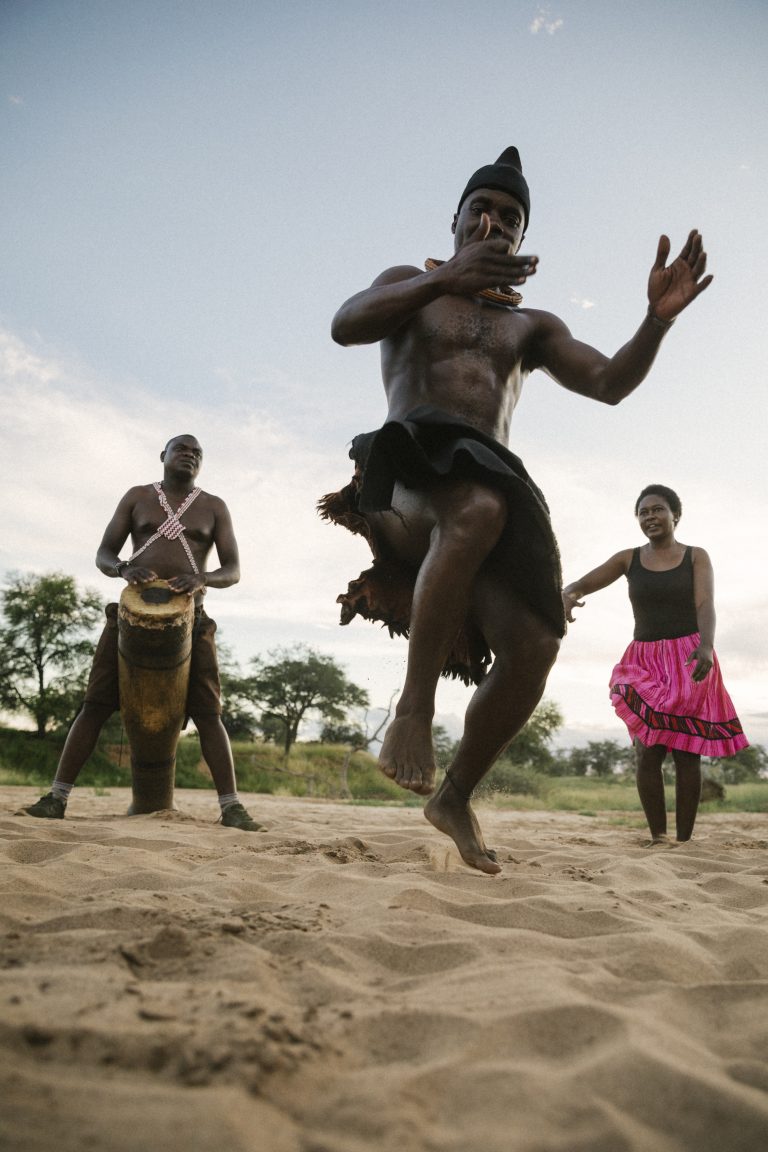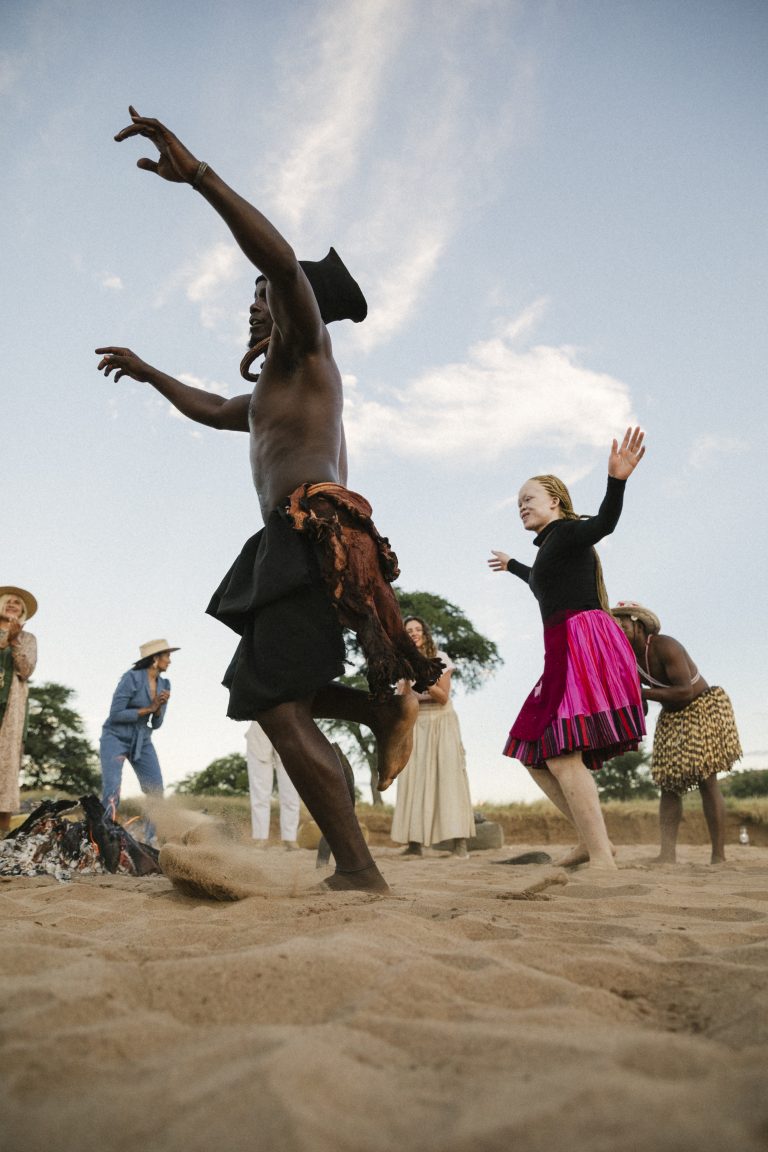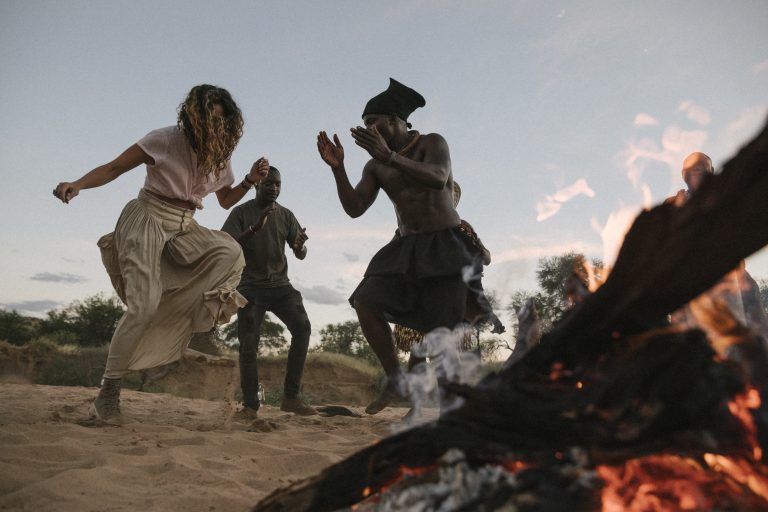For generations past, music and dance have played a pivotal role in the ability to communicate among the human race. While every human culture has language, it can be said music often serves as the universal feature of the human experience. Regardless of linguistic boundaries, music is a common thread that universally connects us all. In Africa, traditional music and dance are often linked to rituals or social functions, as the immediate reference to the moral being, spirit, and conscience. Dancer, singer and all-around creative genius Namibian native Vetunjona Uarije, also known as West, tells us a bit about his journey, a glimpse inside the importance of music and dance and a peek inside our magical bush braai and performance in our home in Namibia.
“My national name is Vetunjona Uarije and I’m Himba, from the Kunene region in Namibia, in the Northwest from a village called Otjondeka. As grazers, I grew up moving around alot and from a very young age was always drawn to dance. Dancing is an important part of our culture, it permeates every aspect of our lives. We have a dance for every occasion; weddings, healing rituals, coming of age ceremonies the list goes on. I was lucky enough to have my grandmother raise me and I owe a lot of my passion and learnings to her. In our culture, dance is an important form of storytelling, and I remember my grandmother always telling stories around the fire and encouraging me to dance and participate. It was then that I realized, if I can bring my grandmother this much joy from performing, I can make others happy as well, which is where I decided this is a passion worth pursuing.” says West.
During school, West continued to pursue theatre, music and dance and later joined a prestigious dance company which gave him the opportunity to travel beyond Namibia, to South Africa and Europe. “The more I traveled the more I realized I wanted to share my culture with the world and eventually made my way back.” says West.
While there are a myriad of styles of music and dance around Namibia, the main ones in the region are Mohiba, Omuhiva and Ondjongo. “Omuhiva is usually performed by the Herero men, accompanied by women in a call and response way. The songs of praise are poetic, usually celebrating a hero/heroine, king, queen etc. Ondjongo is performed by both Himba men and women and consists of clapping, stomping and quick feet. Standing in a semicircle, everyone participates, it’s a beautiful celebratory song and dance; a gift from us to the audience” says West.
The instruments and dress are vital to all the dances, the main instrument being the kudu horn. The kudu horn is not only used in dance but also in the fields when working with livestock and by healers in healing rituals as well. In most celebratory songs, the kudu horn can be seen combined with congas [type of drum] and Djembes, a rope-tuned skin-covered goblet drum played with bare hands. The traditional Himba dress for both men and women consists of animal hide (kudu, sheep) and jewelry consisting of beads, shells, leather and metals.
“What I love most about performing is how music connects humans with each other, with energies, with ancestors, its all encompassing. Everytime I perform, I feel the spirit of the living and the spirit of our ancestors unite and it creates this magnetic energy, where the environment and souls connect- it is a feeling that is impossible to describe, you just have to be there to experience it.” says West, excitedly. I feel eternally grateful for the opportunity to share my passion and most importantly my culture with others.”
One of the most memorable experiences at HABITAS Namibia is the Bush braai; where guests are whisked away to a dry river bed deep in the bush where the sounds of the Savannah are blissfully complimented by West and his talented group around a roaring fire. There are few things more evocative than energizing your spirit with the celebratory sounds of singing in the Savannah.

